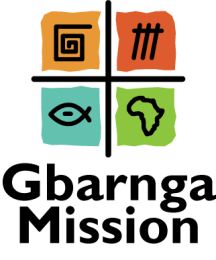Slavery in the United States is inextricably linked to the formation of Liberia as the first independent republic in Africa. Today we join both our African and our African-American sisters and brothers in celebrating Juneteenth and the liberation of slaves. Yesterday I read an excellent summary of Liberia’s founding from the Library of Congress posted by Cheryl Lederle. I encourage you to read the excerpt below and ponder America’s journey — and efforts made in the name of Christianity — towards equality and freedom for everyone. I was struck by these statements: “Many whites saw colonization as a way to rid the nation of its black population… Still others believed black American colonists could play a central role in Christianizing and civilizing Africa.”
The word “civilizing” is such a loaded term and I’ve never liked it used in this context. In light of our country’s reignited racial strife, struggle for equality, and battle for justice, these statements underscore for me how little progress has been made and how slow the path to change. It saddens — and maddens — me that our collective mindset appears to remain: “different = threat”.
I’m proud of the bridges Gbarnga Mission is building between two communities that have grown to love and respect each other, that celebrate their cultural differences, and that promote a common vision for sharing God’s love through education in Liberia. Together we can make a difference.
Liberia, Africa’s Oldest Independent and Democratic Republic (excerpt)
by Cheryl Lederle
On July 26, 1847, Americo-Liberians declared the independence of the Republic of Liberia.
The West African country of Liberia shares special historical ties to the United States, dating back to its founding in 1822 by former slaves and free-born blacks from the United States under the sponsorship of the American Colonization Society (ACS). Established in 1816, the ACS was chartered to send freed slaves to Africa as an alternative to emancipation in the United States.
Between 1822 and the American Civil War, the Society assisted in the repatriation of nearly 19,000 American-born blacks to Liberia. Prominent supporters of the ACS efforts were Presidents Thomas Jefferson, James Madison, and James Monroe.
Both blacks and whites were divided on this movement back to Africa. Some blacks supported emigration because they thought that black Americans would never receive justice in the United States. Others believed African Americans should remain in the United States to fight against slavery and for full legal rights as American citizens. Many whites saw colonization as a way to rid the nation of its black population, while others believed that freed blacks could realize their potential better in Africa free of racial discrimination. Still others believed black American colonists could play a central role in Christianizing and civilizing Africa.
Initially the colony was run by the ACS, which maintained control over all aspects of governance. Liberia’s capital, Monrovia, was named after the United States president James Monroe, and its government was modeled on that of the United States. Joseph Jenkins Roberts, American-born native of Virginia, was elected the first African American President of the new nation. In 1862, President Abraham Lincoln extended official diplomatic recognition to Liberia. Ten of Liberia’s 23 presidents were American born.
The root of Liberia’s present-day political problems can be traced back to conflicts between the descendants of American freed slaves settled during the 19th Century and the indigenous ethnic groups. The African American colonizers formed an “Americo-Liberian” elite and recreated a two-tiered American society based on ethnicity and class, not unlike the one they had left in the hope of finding a better life and freedom. The colonizers spoke English and established in Liberia many of the customs of America’s southern states, including forms of social interaction, religion, dress, and architecture. They discriminated against the indigenous ethnic groups in the nation’s social, civic and political life, and attempted to replace their traditional religious beliefs with Protestant Christianity.


These are dark realities that we need to honestly face if we are to overcome most of the problems affecting us as a nation.Thank you for the wonderful work you continue to do in Liberia.
LikeLike